Project Rainbow Jersey
How British Cycling planned meticulously for Mark Cavendish to win the 2011 road race world championships title

This article first appeared in the December 11, 2008 issue of CW
In an interview with Cycling Weekly at the World Cup in Manchester a few weeks ago, British Cycling performance director Dave Brailsford said: “We got to a point where we said, ‘What’s it going to take to win the road Worlds?’
"The way Rod [Ellingworth] approached it was to say, OK, so we want to win it in two or three years’ time, what do we need to put in place to win it? We need to start thinking about it now. What riders do you need, how are they going to work? You can’t just rock up two weeks before, select the best riders and hope we can get Cavendish a lead-out train.
“So, they’re on the case already and they’ve got a really good plan. Real good. There are a lot of other ideas they are working on. They’re smart guys, they’re detailed, they sit down and work things through. When you go through some of the ideas they’ve got, it just blows you away. It’s very exciting.”
And with that, Project Rainbow Jersey was born.
Team training
It’s a cold, late November morning in Cheshire, a few miles south of Manchester. We’re in a Great Britain team car. Ellingworth is at the wheel and there’s another British Cycling coach, Matt Parker, in the passenger seat.
Get The Leadout Newsletter
The latest race content, interviews, features, reviews and expert buying guides, direct to your inbox!
Ellingworth speaks into the radio handset on the dashboard, a calm but clear instruction. “OK guys, I’d like you to start the lead-out now, two kilometres to go, wind up the pace please.”
Ahead of us, the line of seven riders, most of them in Great Britain jerseys, begin to simulate the sprint lead-out at the finish of a race, shepherding a designated sprinter to the line, which in this case is a 40mph sign and a red rumble strip across the road.
In front of them is another group of seven riders doing exactly the same drill and behind them in the car are coaches Darren Tudor and Heiko Salzwedel.
This is the unseen work that British Cycling hopes will one day see a British rider pull on the rainbow jersey at the end of the men’s road race. Tom Simpson, in 1965, remains the country’s only world champion. Mark Cavendish, so Ellingworth and Brailsford believe, could be the second.
Ellingworth, who developed the Academy set-up that has produced Cavendish, Geraint Thomas, Jonny Bellis, Ben Swift and plenty of others in less than five years, is now overseeing the senior riders. It’ll be less of a day-to-day role, he says, but when they are together it’ll be just as hands-on.
A month ago, Ellingworth gathered together the likes of Bradley Wiggins, Geraint Thomas, Rob Hayles, Ben Swift, Ian Stannard, Jonny Bellis, Ed Clancy, Chris Newton, Peter Kennaugh and the current crop of nine Academy riders for the start of a structured training programme.
“Every day is planned up to Christmas,” says Ellingworth. “The Academy lads come in and out of it depending on the work they’re doing with Darren. The pros come in when they can, depending on their commitments with their teams. It’s structured but informal.”
A combination of work on the road and track is designed not just to build fitness for the short term goals of the 2009 season but to build a team environment for the long-term.
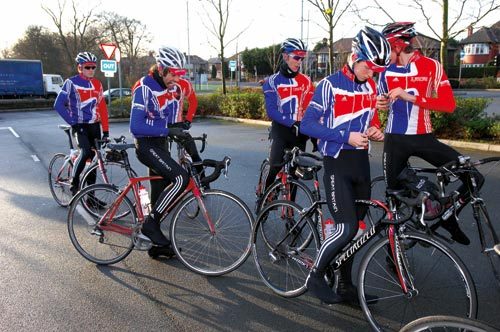
Crystal ball
“The thing is, no one really thinks we’re going to win the Worlds, do they?” says Ellingworth.
“If you mention it to people I’m sure they’d have the same view. ‘That’s not going to happen.’ But if you’ve got the best sprinter in the world and there’s a course he can win on...
“The thing is, we’re not going to win the Worlds next year. The course is too hilly for Cav and we haven’t got anyone else at the moment. There’s a danger people will hear all this and say, ‘Well, what’ve they done all that for, to come 25th,’ or whatever.
“But we’re looking longer term than 2009. Every step along the way we’ll think realistically. What can we really achieve next year? We won’t big it up when we know we’re not going to be up there. So we’re not going to be competitive in Mendrisio but going in with no plan is pointless. We have to learn to be competitive. Steve [Cummings] wants to take his racing further. Chris Froome could squeeze out a decent performance. Look at Swifty, he lasted to the death in the Olympics. Give him a year on the road, and who knows? I’m not saying he’ll be there on the last lap but we can go into the race with set goals for each rider.
“Ian [Stannard] isn’t a show-off character so if you don’t get a hold of him he can slip into the team and just ride round, but give him a job and he’ll turn himself inside out for you. I’d like to see him tackle a job, maybe go in a break or something, participate in the race.
“Let’s not beat about the bush,” he continues. “If we’re going to win the Worlds, it is most likely going to be with Cavendish isn’t it? In the meantime, someone else could come through who could give us chances in a different type of race but with what we have now, we need to build a team around Cav. If we had another sprinter, you’d still only go with the best one. You wouldn’t pick both.
“You’ve got to think of it like a football team. Manchester United have got a load of world-class strikers, but they don’t all play every week. They don’t go, ‘Well, he’s a great striker but we’ve already got two up front so we’ll put him in defence.’ Everyone has a clearly defined role in the team, and we’ll be the same.”
The lead-out drills are important, Ellingworth says, even if some of the riders involved have little chance of being on the start line. Apart from anything else, it’s a case of practising some of the skills any professional rider needs. “If this helps them in their careers too, it’ll all pay back to British Cycling in the end. We’re trying to create bike riders here.”
Each Friday session focuses on a different aspect of racing but today it’s lead-outs. Ben Swift, a useful sprinter who has been on the back of some decent lead-outs from his Academy team-mates this year, is taking the role of worker rather than sprinter. “It gives everyone a chance to see what the other jobs are all about.”
So where’s the man all this careful planning is being put in place for? Why is Mark Cavendish not in Cheshire in the cold?
“He’ll join up when he can but for the pros they have to do their jobs first. Wiggins was here a couple of weeks ago but he’s only just got back from the Garmin camp in America, Stannard would be here but he’s in Italy signing his new contract, Bellis is with Saxo Bank.
“Over the course of the season we’ll have little training camps, even if it’s just for two or three days. Everyone’s got a part to play. It’s about building a team and establishing practices and processes from day one. We need to be working together, having them live among each other a bit more in Italy.
“Most of them have come up through the Academy so they know each other. When they get round the dinner table they always say, ‘Oh, you haven’t had it as hard as we had it,’ and those Academy experiences have already built a bond, even between riders who have never ridden together.”
Brailsford believes Ellingworth will be the most important man in professional cycling in five years’ time, hinting that he could have a big role to play when the British-run team gets off the ground in 2010. Team Columbia sounded out Ellingworth about a managerial position earlier this year, which underlined his rapidly growing reputation, not to mention the fact he’s Cavendish’s coach and mentor. And anyone who’s close to Cavendish is going to be sought after as the sprinter’s stock continues to rise.
If Cavendish is to pull on a rainbow jersey, or win the Olympic road race title in London, it will owe everything to the work and planning started in the cold air of north-west England in November 2008. Just 14 bike riders in red, white and blue, a couple nearing the end of their careers, some established world-class talent, but most just starting out, laying the foundations.
https://www.youtube.com/watch?v=iI9vHMudU08
THE CHALLENGES
Rod Ellingworth has a list of more than 20 challenges he feels the team will face at the road Worlds. Just as the track coaches identify every area for improvement, Ellingworth is seeking to do the same, even though he knows there are many more variables on the road. Here are some of Ellingworth’s tasks.
There’s no room for the end-of-season blues
“We simply won’t stand for this end-of-season blues thing. We’re not having people turn up
complaining that’s it’s been a long season or whatever. If they feel like that, they go home. Even if we don’t have a potential winner next year, they’ll go into it
professionally or not at all.”
Kit, equipment and food
“These are only small things but they all add up. The riders get the kit a couple of days before the race and we’re expecting them to sit for seven hours in a different pair of shorts to the ones they’ve just ridden two Grand Tours in. We’ll familiarise them with the kit. Same with equipment. Are they bringing their own wheels? Will our mechanics get their bikes right? Again, they’re used to certain food at races and then it all changes for one race of the year. How do we overcome that? It’s all got to be looked at.”
Management
“At the Worlds they will have a different DS talking to them, so they need to know that guy, understand him, and get to know his methods. Of course, if we had our own professional team you can cut out all that but at the moment it’s still a factor, so we need to get the riders together as often as possible as a group, even if it’s only for a couple of days here and there.”
Team building
“If the goal is to win the race, you have to build a team to win that race. So, if the course offers a chance for a sprint, you build everything to get your sprinter to the line. That means breaking the team down into categories and filling the roles with people who are specifically prepared to do those jobs. We’re looking at Cavendish winning when the course suits him, so let’s build a team to get to the finish with him on the back.”
Getting more places
“This year we had six riders so the first priority is to get a full team of nine riders. As a nation we need to finish in the top 10 of the UCI rankings. This year we were outside the top 20, so there’s a lot of work to do. Cavendish will keep winning races and there are a few more who can step up and score points. ‘G’ [Geraint Thomas], Steve Cummings, these guys can get big results in the next couple of years and we’ve got more coming through.”
Bonuses
“We’ve got to be realistic about it — these are professional bike riders we’re talking about. They ride for their professional teams all year and then we expect them to turn up and do it for free? It’s not realistic. Yes, there’s pride and honour in riding for your country, but if one guy is going to win a world title, the others in the team should be rewarded too. If that means we give them A-category funding then maybe we have to look at that possibility.”
Lap-by-lap
“The thing about the Worlds is it’s a race over a number of laps. Every lap there’s an opportunity to get off. I don’t think it hurts to train on a circuit as a group. It also cuts out the excuses. You work out where the wind’s coming from. There’s no excuse being in the wrong place on a circuit.”
The eventual goal
“One day, we want nine riders in GB jerseys on the start line of the Worlds, all feeling good, all with the right food in their pockets, they know the manager and the mechanics and the masseur. They all know their role in the team and they go and get the job done.”
2009
“We’re not going to win the Worlds next year. We haven’t got a rider for that course but that doesn’t mean we go in without a plan. If you do that, you can guarantee you will get nothing. So we’ll look at what we can do in the race and set specific targets. If those goals are modest, so be it, but it’s all experience for the riders.”
2010 and beyond
“I’ve heard they’ve added a hill to the Melbourne course [2010] so we’ll have to wait and see whether that suits Mark. Copenhagen [2011] will be flat. The Olympics [London 2012] will be winnable too. There are potentially three very good opportunities and there’s time to get it right.”
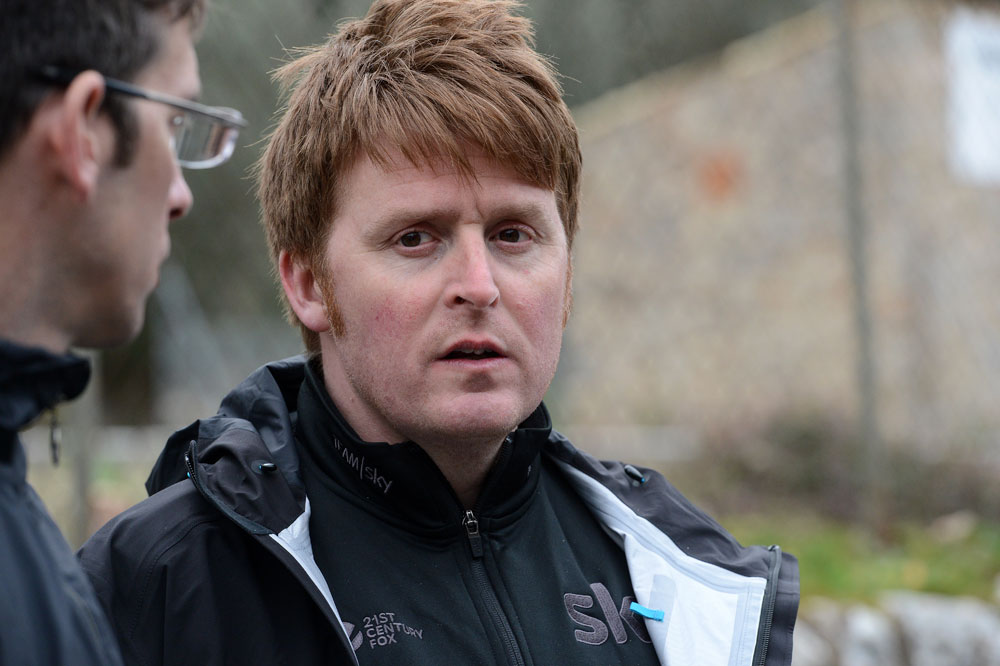
WHO IS ROD ELLINGWORTH?
The 36-year-old British Cycling coach was born in Grantham, Lincolnshire.
He raced for the Ambrosia team in the mid-1990s before moving to France to ride for UV Aube. Solid on the road and track, he’s been part of British Cycling’s coaching set-up since he retired in 2002.
In 2003 he set up the Academy, drawing up the blueprint for the development of young road riders.
ELLINGWORTH ON CAV
“You have to put everything into a bike-racing context for Cav,” says his coach and mentor.
“If we’re doing something in training, you have to say, ‘We’re doing this, because in the race this is going to happen.’ If he can’t see why it’s relevant to an actual race you may as well be talking to yourself. He doesn’t need things explaining twice very often, he takes it all in. It’s frightening how quick he picks things up sometimes.
“He’s an emotional guy but he’s a joy to work with. You can sit down and ask him what his goals are and he’s very clear about them, and he’s very serious about working hard.”
RELATED LINKS
Mark Cavendish wins World Road Race Championship
A Minute With: Rod Ellingworth
Tuscan training run: British Cycling Olympic Academy

Thank you for reading 20 articles this month* Join now for unlimited access
Enjoy your first month for just £1 / $1 / €1
*Read 5 free articles per month without a subscription

Join now for unlimited access
Try first month for just £1 / $1 / €1
Sports journalist Lionel Birnie has written professionally for Sunday Times, Procycling and of course Cycling Weekly. He is also an author, publisher, and co-founder of The Cycling Podcast. His first experience covering the Tour de France came in 1999, and he has presented The Cycling Podcast with Richard Moore and Daniel Friebe since 2013. He founded Peloton Publishing in 2010 and has ghostwritten and published the autobiography of Sean Kelly, as well as a number of other sports icons.
-
 FDJ-Suez, SD Worx-Protime, Lidl-Trek confirmed for Tour of Britain Women as strong list of teams announced
FDJ-Suez, SD Worx-Protime, Lidl-Trek confirmed for Tour of Britain Women as strong list of teams announced18 teams set to take part in four-day WorldTour stage race
By Tom Thewlis
-
 Cyclists could face life sentences for killing pedestrians if new law passed in England and Wales
Cyclists could face life sentences for killing pedestrians if new law passed in England and WalesReckless cycling currently carries a maximum two-year jail term
By Tom Thewlis
-
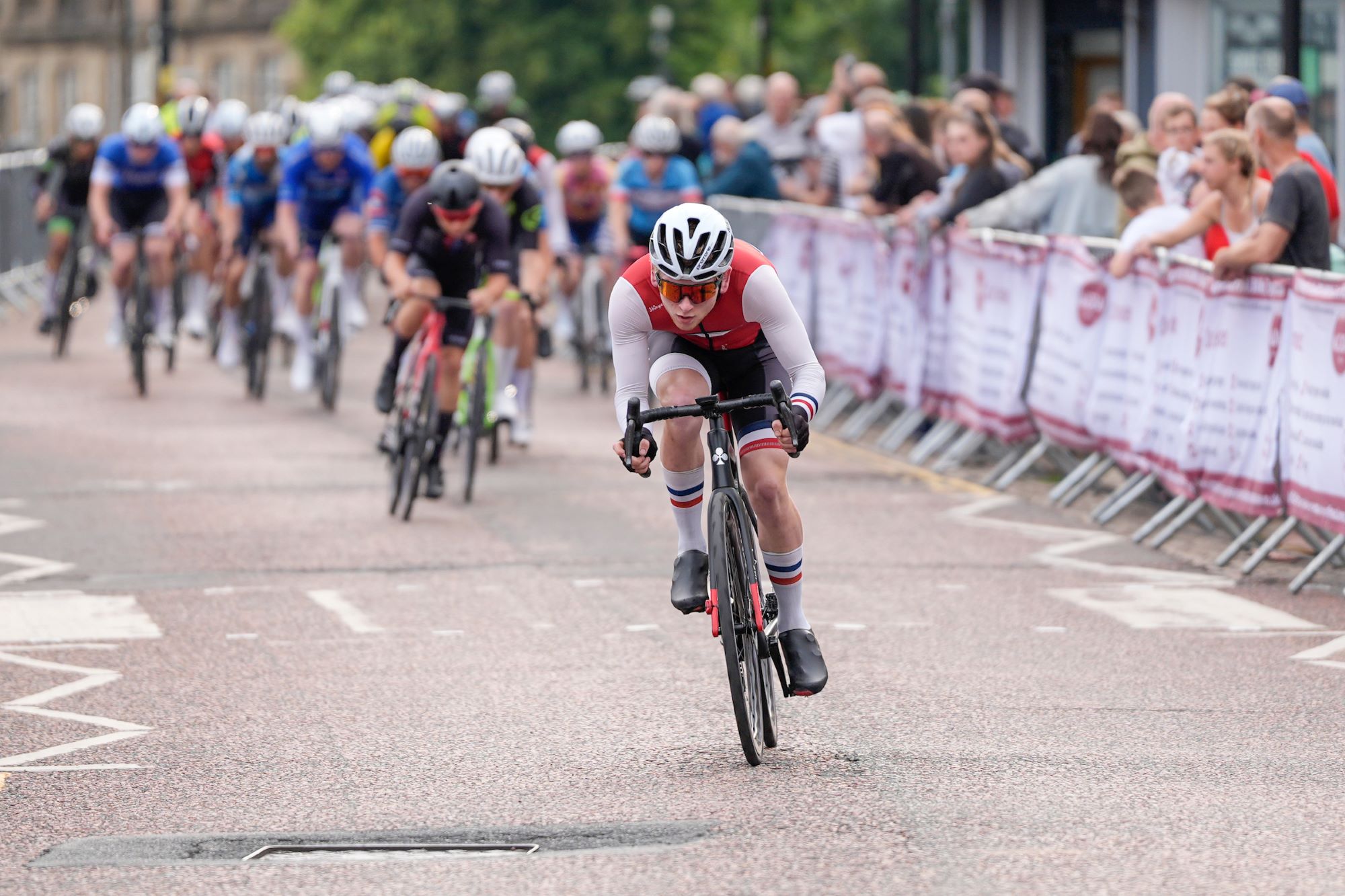 Teenage British time-trial champion dies after training ride collision with car driver
Teenage British time-trial champion dies after training ride collision with car driver360Cycling “absolutely heartbroken” after death of 18-year-old Aidan Worden in Darwen, Lancashire
By Tom Thewlis
-
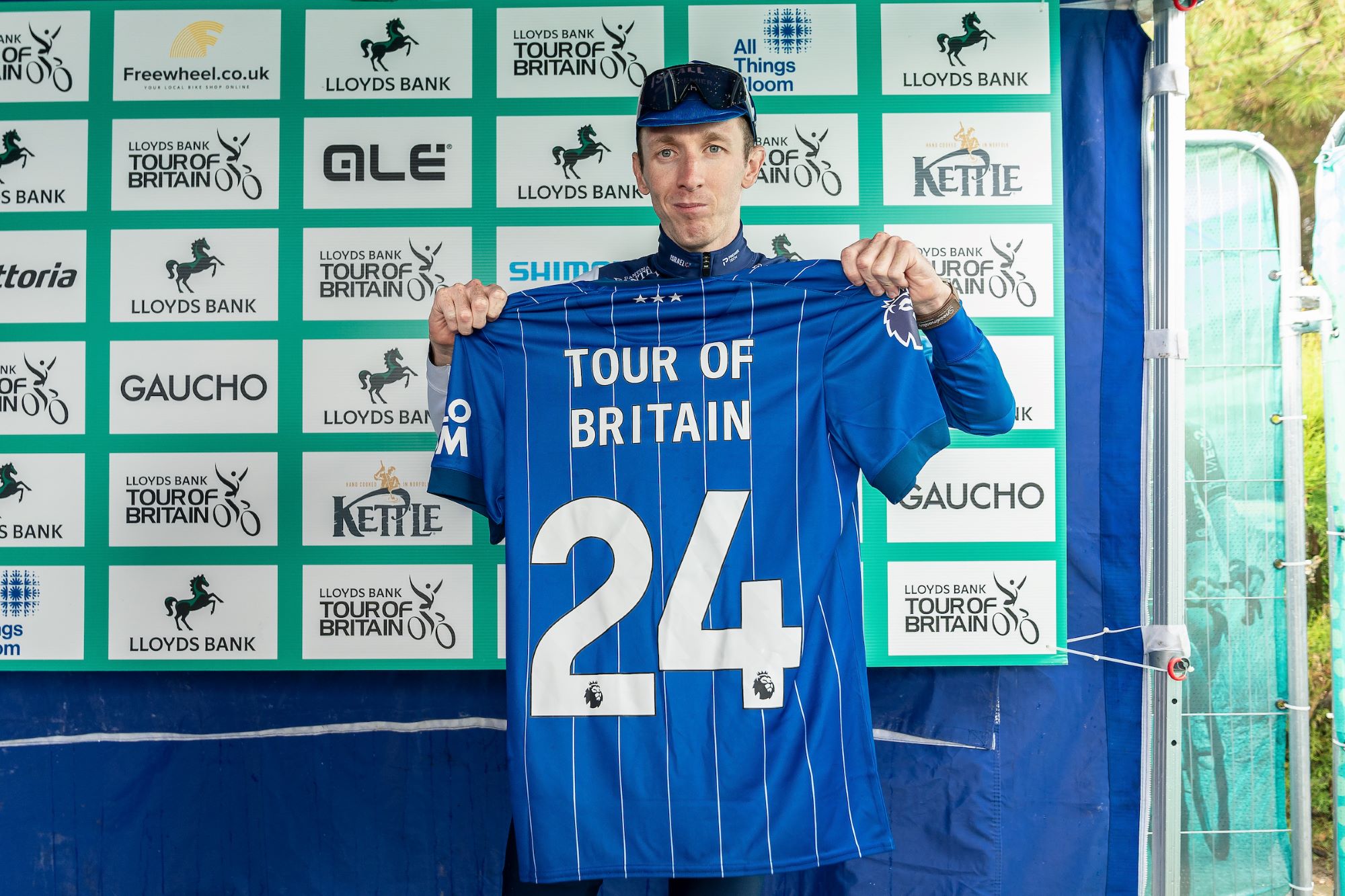 Tour of Britain races boosted local economies by £30 million
Tour of Britain races boosted local economies by £30 millionYouGov data shows significant impact both the men’s and women’s national tours had on host towns across the country
By Tom Thewlis
-
 No new investment for National Series in British Cycling task force update
No new investment for National Series in British Cycling task force updateRoad and circuit series funding to continue at around £180,000
By Tom Davidson
-
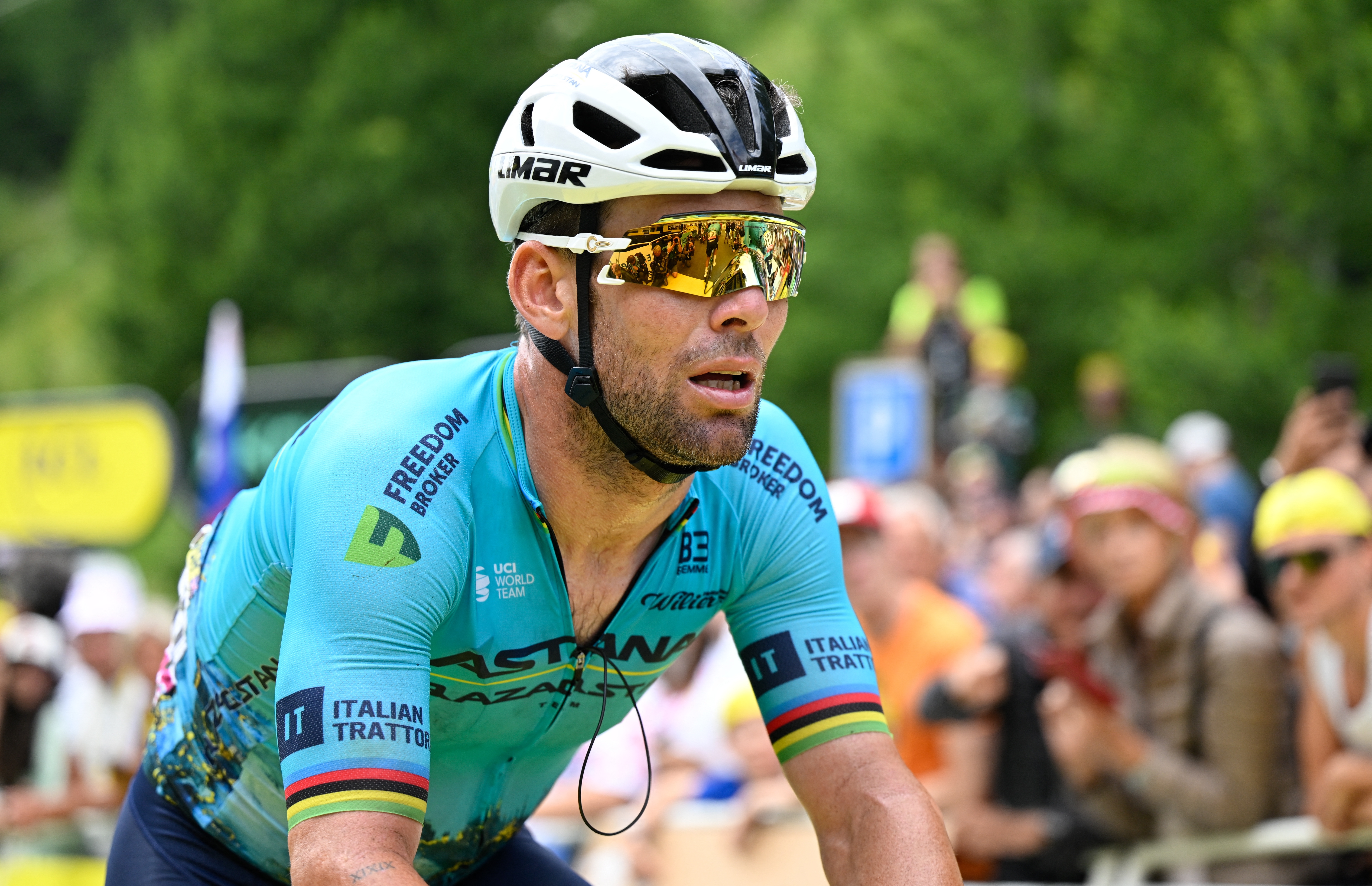 'I had a zombie knife held up to my throat' - Mark Cavendish opens up about 'horrific' armed robbery
'I had a zombie knife held up to my throat' - Mark Cavendish opens up about 'horrific' armed robbery39-year-old says he felt 'helpless' during home raid
By Tom Davidson
-
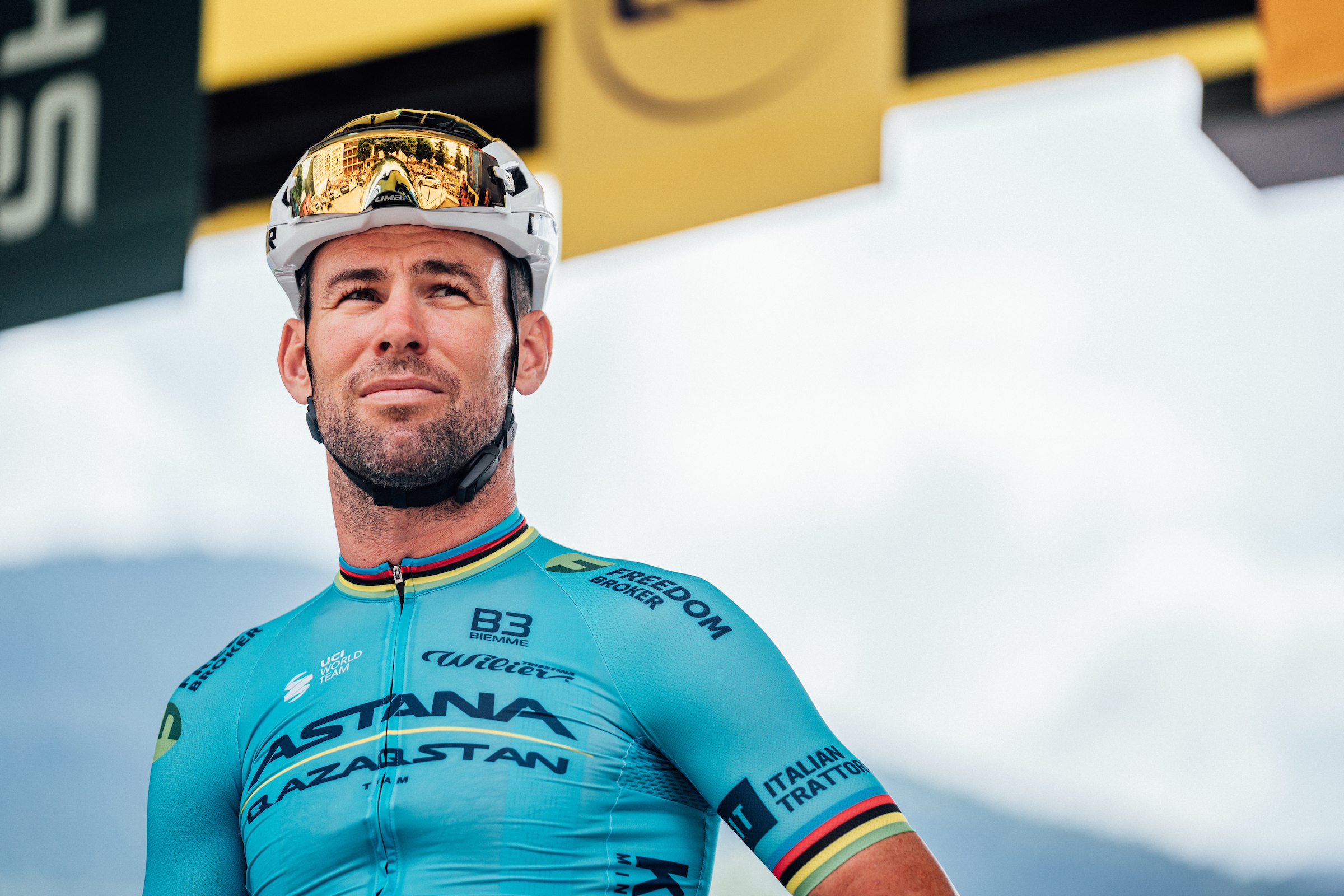 What's next for Mark Cavendish?
What's next for Mark Cavendish?The legendary sprinter has hinted at a future in cycling team management - but when might that be? And with which squad?
By Tom Davidson
-
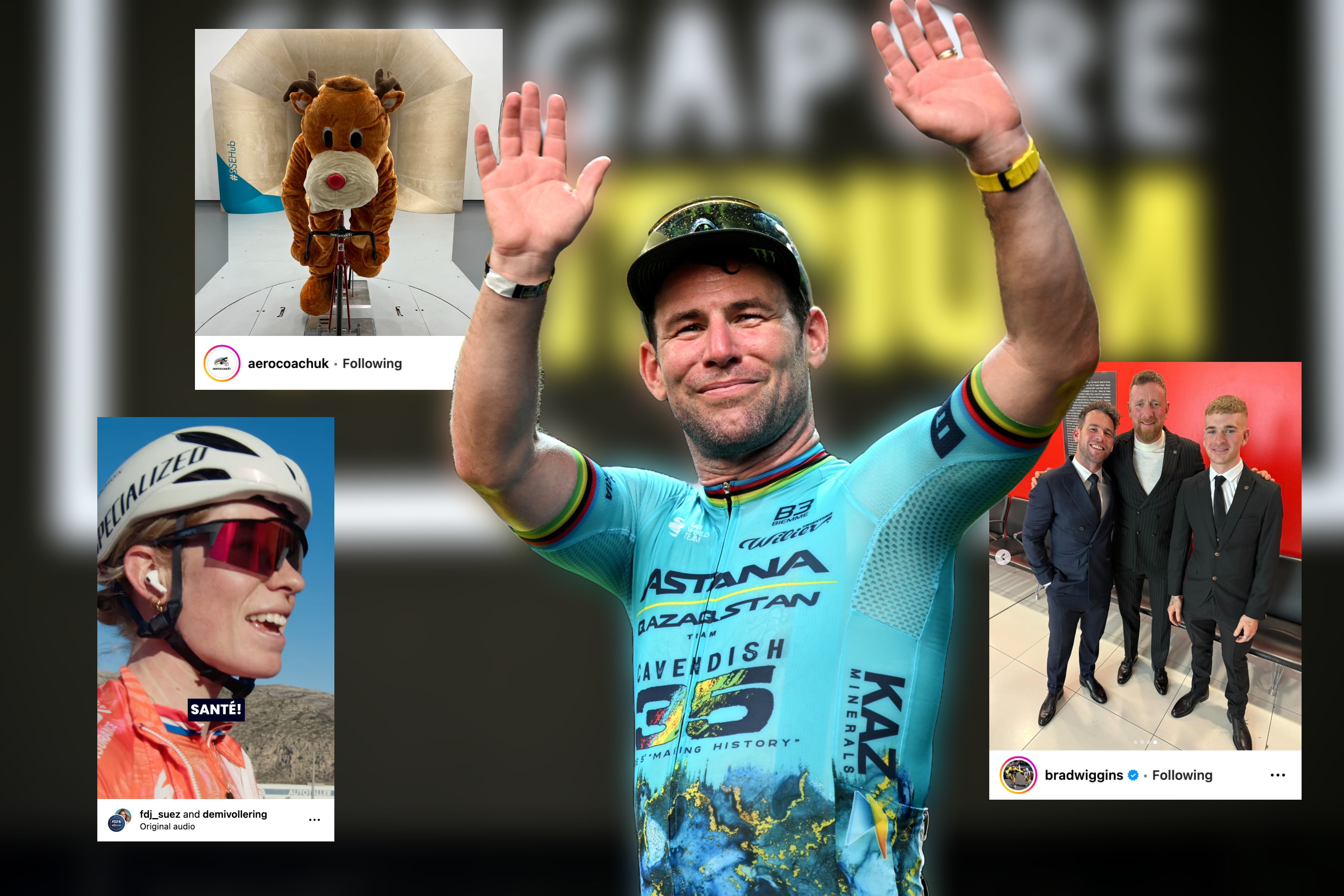 Tweets of the week: Mark Cavendish's special message, Demi Vollering learns French, and a reindeer enters the wind tunnel
Tweets of the week: Mark Cavendish's special message, Demi Vollering learns French, and a reindeer enters the wind tunnelThe Manx missile has a secret admirer, and you'll never guess who it is
By Tom Davidson
-
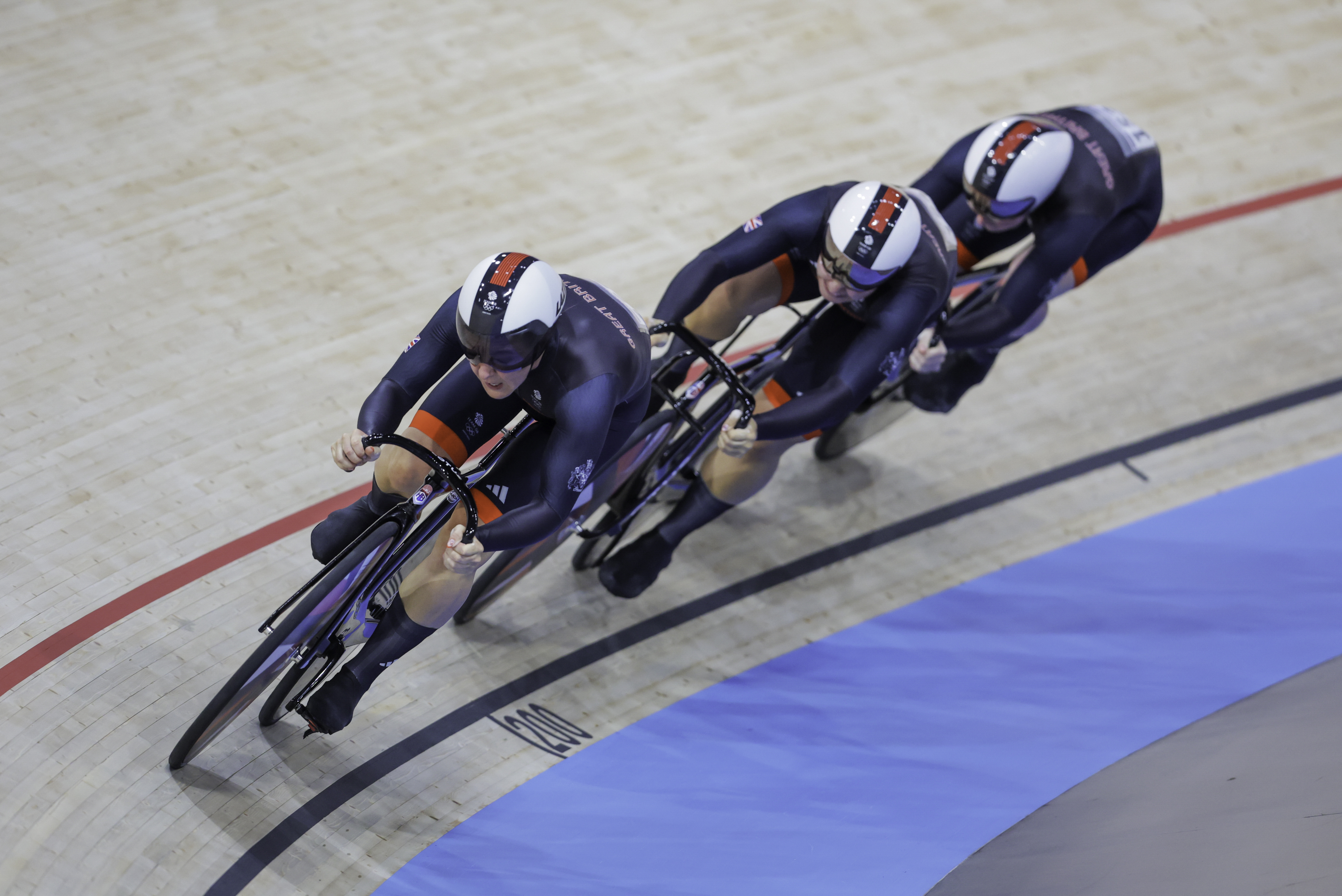 British Cycling receives record £39m funding for 2028 Olympics and Paralympics
British Cycling receives record £39m funding for 2028 Olympics and ParalympicsGB performance director 'incredibly pleased' with allocation for Los Angeles Games
By Tom Davidson
-
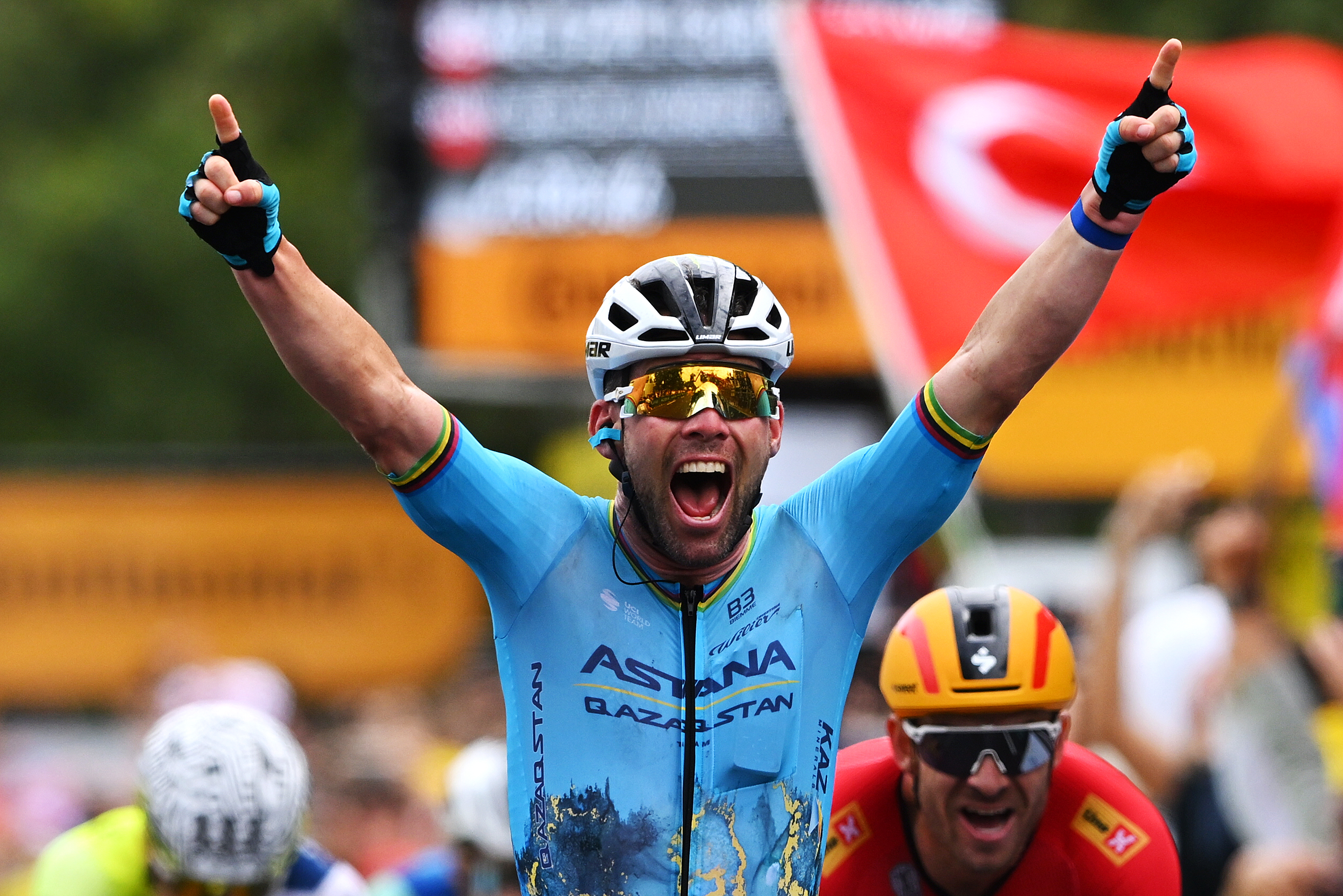 Mark Cavendish wins Lifetime Achievement award after BBC Sports Personality of the Year snub
Mark Cavendish wins Lifetime Achievement award after BBC Sports Personality of the Year snubTour de France legend to be recognised during broadcaster's Sports Personality of the Year on Tuesday
By Tom Davidson